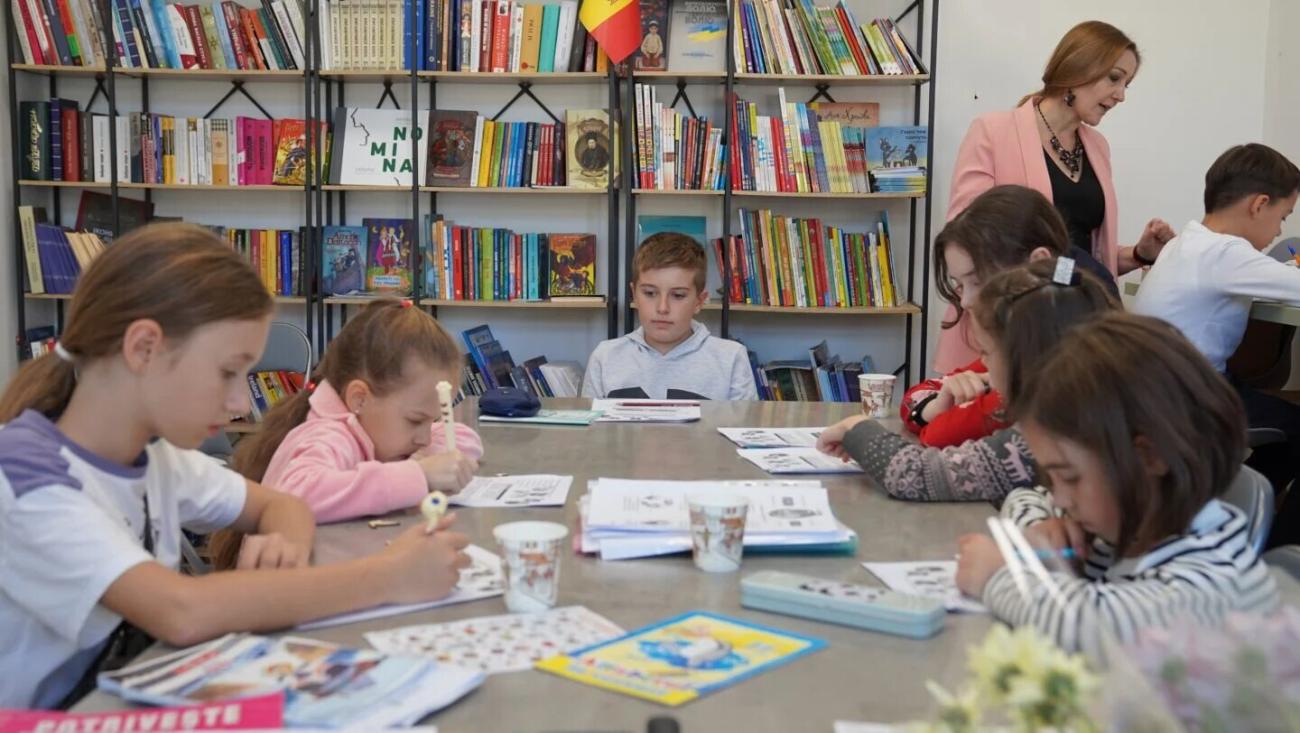Tatiana has made it her goal to teach her class the Romanian phrases needed in everyday life.
Marina and her husband Serhii are from Kherson, Ukraine, and have been attending Romanian language lessons in Chisinau for almost two months. They are part of a class of about 40 refugees, and other foreigners living in Moldova.
The class meets on a Friday at the Charity Centre for Refugees and shares their experiences of using their Romanian language skills over the past few days.
“I know how to ask for directions in Romanian,” Hanna says enthusiastically before the Romanian class begins.
“I understand what people say in the shop,” says Elvira.
Tatiana says she took up teaching Romanian to adult refugees in Moldova for several reasons, one being a desire to help them integrate into society. And seeing their willingness to learn fueled her with even more enthusiasm.
“People who come to lessons come here as if they were at home. They have made friends, they communicate with each other and so the Romanian language, a completely new language for them, is easier to learn. Someone is motivated by the desire to integrate, someone wants to know at which stop to get off public transport, and someone was driven by everyday needs,” says Tatiana.
Like Tatiana, Natalia is just as enthusiastic and energetic when she teaches Romanian to Ukrainian children at the Community Centre 151 in Chisinau.
Kids aged 8 to 10 attend their Romanian classes twice a week with Natalia, who says she has a wonderful time teaching them. It’s also a new experience, as most of the children are from Ukraine and are learning Romanian from scratch.
“We learn nouns, adverbs, adjectives, we communicate. I try to discus with them more in Romanian. We also have homework, we read a lot. The children are interested, and I hope I inspire them,” says Natalia.
The Romanian language courses at Charity Centre for Refugees and Community Centre 151 are free of charge, an activity that UNHCR, the UN Refugee Agency, supports across Moldova as part of the activities of the Community Service Centers Network.
Knowing the language of the receiving country is a key aspect of successful integration of refugees into host societies, as it opens doors for social interactions, labor market, forming friendships, and much more.
Through the joint programmes with local partners, UNHCR aims to answer to refugees expressed needs and to direct efforts towards the inclusion of the refugees who have chosen Moldova to be their new home.




